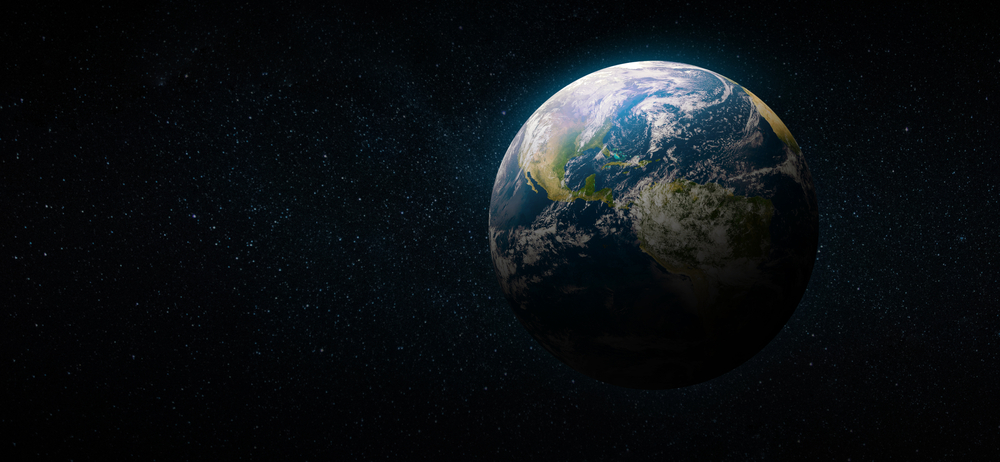Once you become aware of the amount of hunger and inequality there is in the world, your only option is to fight against it. That awareness gave Kenyan Njoki Njoroge Njehu her mission: not the reduction of poverty, but its eradication. This is a conversation about Njehu’s lost innocence. ‘Why do you think so few Africans ever go into therapy?’
Marco Visscher and Tijn Touber | February 2003 issue
Imagine a basketball court. We have two baskets at equal heights and a basketball: a good starting point for a fair game. But now you ask me to compete against Michael Jordan: that is not a fair game between two equal parties. That’s what’s wrong with the global economy.’ And Njoki Njoroge Njehu is not about to let the game go on any longer.
As the director of 50 Years Is Enough, a network for global economic justice, her arrows are pointed chiefly at the World Bank, IMF and WTO. According to Njehu, these three architects of globalization are responsible for the poverty, inequality and misery in the lives of hundreds of millions of people. She calls them antidemocratic for imposing their policies on people not represented in the decision-making process. She quotes an old African saying: ‘When the elephants fight, the grass gets trampled. It’s the same with world economics: the US and Europe are the elephants, all the others are the grass.’
Official policies are presented in smooth phraseology, says Njehu. ‘The IMF cleverly renamed its Enhanced Structural Adjustment Facility as its Poverty Reduction and Growth Facility. It may sound a lot better, but just pay attention to that phrase, “poverty reduction.” As if that were enough! What we need is the eradication of poverty.’
Because of her work, Njehu is often involved in discussions with members of the institutions she criticizes, but she is always swift to point out that she is not really the person to talk to. ‘They shouldn’t be talking to me, but to the millions of people who are starving because the food they produce is meant for export purposes, not to feed their families. They should be talking to the children who can’t go to school, to the families who are fighting starvation every day, to the people who are driven from their lands to make way for another huge dam. They should be talking to the people who live – and die – under the conditions imposed by them.’
Njehu gives an example: ‘One of the conditions for developing nations to receive a loan is that they promise to increase their exports, which means that people in those nations have to produce more food even if they cannot feed themselves. The food they produce is meant for Western consumption. Or take this World Bank-funded project in Chad and Cameroon, where Exxon/Mobil and some other oil companies will get US$350 million to construct a pipeline – so that Westerners can keep driving their cars! Moreover, nobody listens to the indigenous peoples who live in the very natural environments that are being destroyed. They are seen as mere obstacles to further development.’
As a Kenyan who ended up in Washington, she knows better than anyone how important it is to listen to the people she wants to support. ‘In my line of work, you are often tempted to say what is right or wrong for Africa. Well-meaning NGOs do it all the time. The people of the South have become their “project”. That is not to say that I’m so much better than them, but I’m aware of that struggle all the time.’
It’s an awareness Njehu grew up with. When her mother, herself an activist, used to talk about her struggle for improved living conditions, their friends and family would always warn her: ‘Watch what you say, Njoki can hear you.’ But she would say: ‘The sooner she finds out the truth, the better.’ Njoki was nine years old when she had to replace her mother in a meeting. This permanently awakened her activist spirit. ‘I wanted to understand why there was so much misery around me,’ she now says. ‘I understood that there existed another truth than that which most people believe in.’
‘A professor once told me: “To gain awareness is to lose your innocence.” He was right. I know all about the trouble people have to feed themselves, the impact of international debts, the people who die of AIDS even though cheap medicines should be readily available. I can’t wake up one morning and pretend I don’t know that. If more people would realize the consequences of this globalization we have invented, there would be even more of us rallying in the streets. Nobody would want their taxes to be used to increase global inequality.’
That is why Njehu finds hope in the strong presence of the anti-globalization movement, with its well-formulated critique of the World Bank, the IMF and the WTO. ‘For fifty years, these organizations were seen as the West’s contribution to development in the poorer nations. The street protests have finally put their lousy record in the headlines and on TV. Demonstrations are crucial to keep the pressure up. Look how impressive it is if millions of people demand that the debts be exonerated, that the World Bank finally admit to the environmental damage caused by its projects, and that international organizations hold public meetings. Because they are after all public institutions: they should serve the common good, not secure corporate profit margins.’
There can be no doubt about Njehu’s agenda: international organizations should hold public meetings, the debts of developing nations must be cleared, and projects which endanger the right to food, water and public health must be abandoned, as well as any support for environmentally damaging projects such as oil extraction and mining. Njehu: ‘We must break the power of those institutions, so that national governments can get back to doing what their people expect of them.’
And the first thing people expect is the certainty of food supplies: food meant not for exports, but for themselves. Njehu: ‘In Kenya we have this kind of semolina pudding, which is traditionally called “Pass the week”. That is such a beautiful, hopeful message: one day I’ll have more and more healthy food to eat. We need that hope. There is no point in Africans pitying themselves or seeing themselves as victims. That is how well intentioned Westerners see them. Why do you think so few Africans ever go into therapy? They are far too busy surviving. Poor people survive on hope.’











